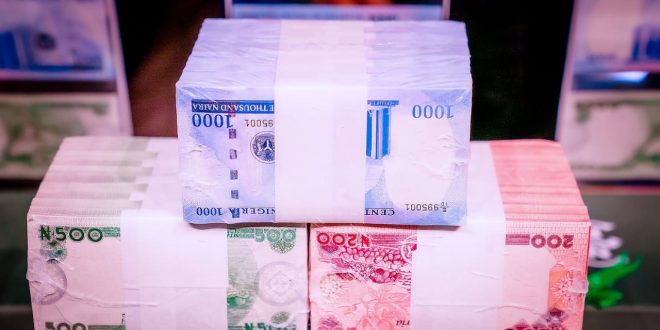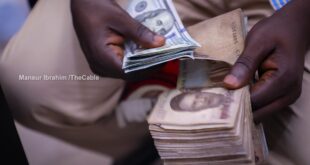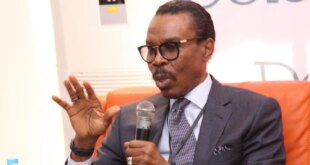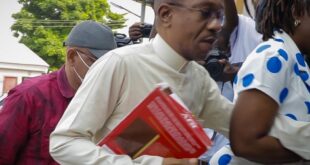The Central Bank of Nigeria has urged Nigerians to accept, use and respect the redesigned Naira notes which were unveiled in November last year by President Muhammadu Buhari.
The apex bank also called on Nigerians to see the redesigned note as a national symbol of the country.
The CBN Abuja Branch Controller, Mr. Michael Ogbu said this on Thursday at a sensitisation of Wuse Market traders on new Naira notes.
He said, “We advise members of the public to ensure that they deposit cash holdings in these denominations at their commercial banks
“There is no limit to how much a customer can deposit between now and January 31, 2023, as the CBN has suspended bank charges.
“Accept it, Use and Respect it as our National symbol. We encourage the public to explore other payment channels, such as eNaira, POS, electronic transfer, USSD, internet banking, and mobile money operators and agents, for their economic activities.”
He said in recent times currency management in Nigeria had faced several challenges that have continued to grow in scale and sophistication with unintended consequences for the integrity of both the CBN and the country.
Some of these challenges primarily include significant hoarding of banknotes by members of the public, with statistics showing that ₦2.72trn out of the ₦3.26trn currency in circulation as of June 2022 was outside the vaults of commercial banks across the country, and supposedly held by members of the public.
This statistic, he stated, showed that 84.71 percent of currency in circulation are outside the vaults of commercial banks, with only 15.29 percent in the Central Bank and Commercial banks’ vaults.
He said, “The benefits of the currency redesign to the Nigerian economy are enormous given that this policy will help to control inflation as the exercise will bring the hoarded currency into the banking system, thereby making monetary policy more effective.
“It will also help with better design and implementation of Monetary Policy as we would have much more accurate data on money supply and monetary aggregates.
“We believe that this exercise would help in increasing financial inclusion, moving towards a more cashless economy, and ensuring greater formalization of the Nigerian economy.
“The currency redesign would assist in the fight against corruption as the exercise would rein in the higher denomination used for corruption, and the movement of such funds from the banking system could be tracked easily.”
 The Commerce Africa African Reneissance
The Commerce Africa African Reneissance




